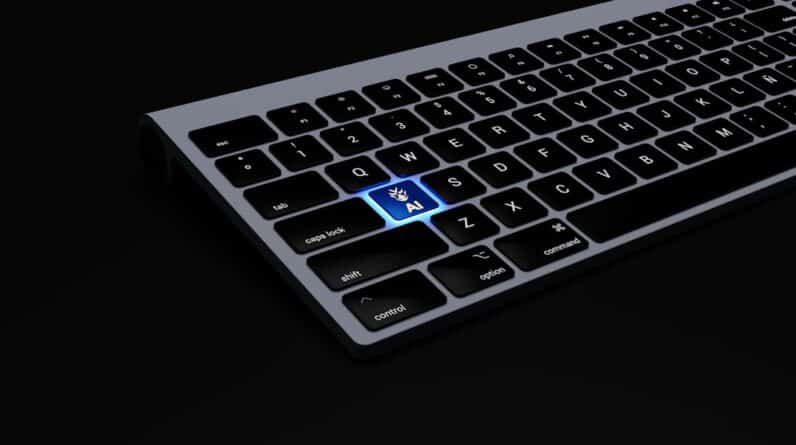As you gaze up at the night sky, you may find yourself pondering the vastness of the universe and the mysteries it holds. The advent of artificial intelligence (AI) has opened new frontiers in space exploration, transforming how we understand and interact with the cosmos. AI is no longer just a concept confined to science fiction; it is a powerful tool that scientists and engineers are harnessing to push the boundaries of what is possible in space.
From analyzing data collected by telescopes to controlling spacecraft on distant missions, AI is becoming an integral part of our quest to explore the final frontier. The integration of AI into space exploration is not merely a trend; it represents a paradigm shift in how we approach complex problems. With the ability to process vast amounts of data and make decisions in real-time, AI systems are enhancing our capabilities in ways that were previously unimaginable.
As you delve deeper into this topic, you will discover how AI is revolutionizing space missions, enabling us to explore planets, moons, and asteroids with unprecedented efficiency and precision.
Key Takeaways
- AI is revolutionizing space exploration by enabling autonomous spacecraft and robotics to perform complex tasks in space.
- AI offers advantages in space missions such as improved decision-making, data analysis, and autonomous operation.
- Challenges and limitations of AI in space include the need for robust and reliable systems, potential for errors, and ethical considerations.
- AI and robotics play a crucial role in space exploration by performing tasks such as maintenance, repairs, and scientific research.
- Autonomous spacecraft powered by AI have the potential to revolutionize space exploration by enabling long-term missions and space colonization.
The Role of AI in Space Exploration
In the realm of space exploration, AI plays a multifaceted role that extends beyond mere data analysis. You might be surprised to learn that AI systems are employed in mission planning, navigation, and even scientific research. For instance, when planning a mission to Mars, AI algorithms can analyze various parameters such as fuel consumption, trajectory optimization, and potential landing sites.
This capability allows mission planners to make informed decisions that maximize the chances of success while minimizing risks. Moreover, AI is instrumental in processing the enormous volumes of data generated by space missions. As you consider the vast amounts of information collected from satellites and rovers, it becomes clear that human analysts alone cannot keep pace.
AI can sift through this data, identifying patterns and anomalies that may elude human observers. This capability not only accelerates the pace of discovery but also enhances our understanding of celestial phenomena, from the formation of stars to the composition of distant planets.
Advantages of Using AI in Space Missions

The advantages of incorporating AI into space missions are manifold and compelling. One significant benefit is the enhancement of decision-making processes. In environments where communication delays are inevitable—such as on missions to Mars—AI can make autonomous decisions based on pre-programmed parameters and real-time data.
This capability is crucial for ensuring that spacecraft can respond swiftly to unexpected challenges without waiting for instructions from Earth. Additionally, AI contributes to cost-effectiveness in space exploration. By automating routine tasks and optimizing mission parameters, AI reduces the need for extensive human intervention.
This efficiency not only saves time but also allows for the allocation of resources to more critical aspects of a mission. As you reflect on the financial constraints often faced by space agencies, it becomes evident that AI can play a pivotal role in maximizing the impact of every dollar spent on exploration.
Challenges and Limitations of AI in Space
Despite its numerous advantages, the integration of AI into space exploration is not without challenges. One significant limitation is the reliability of AI systems in extreme environments. Space is fraught with unpredictable conditions, from radiation exposure to temperature fluctuations.
You may wonder how AI can be trusted to operate effectively under such circumstances. Ensuring that AI algorithms can withstand these harsh conditions requires rigorous testing and validation, which can be both time-consuming and costly. Another challenge lies in the ethical implications of using AI in space missions.
As you consider the potential for autonomous decision-making by spacecraft, questions arise about accountability and control. If an AI system makes a critical error during a mission, who bears responsibility? These ethical dilemmas necessitate careful consideration as we continue to develop and deploy AI technologies in space exploration.
AI and Robotics in Space
The synergy between AI and robotics is particularly noteworthy in the context of space exploration. You may have seen images or videos of robotic rovers traversing the Martian landscape, collecting samples and sending data back to Earth. These rovers are equipped with advanced AI systems that enable them to navigate autonomously, avoiding obstacles and making decisions about which areas to explore further.
This combination of robotics and AI allows for more efficient exploration than would be possible with human operators alone. Furthermore, robotic systems powered by AI can perform tasks that would be dangerous or impossible for humans. For example, consider the potential for robotic missions to explore the icy moons of Jupiter or Saturn, where conditions are extreme and inhospitable.
With AI guiding these robotic explorers, you can envision a future where we gather valuable data from these distant worlds without risking human lives.
AI and Autonomous Spacecraft

The concept of autonomous spacecraft is rapidly becoming a reality thanks to advancements in AI technology. Imagine a spacecraft capable of navigating through deep space without constant input from mission control on Earth. This level of autonomy is not just a dream; it is being realized through sophisticated AI algorithms that allow spacecraft to make real-time decisions based on their surroundings.
As you think about the implications of autonomous spacecraft, consider how this technology could revolutionize long-duration missions. For instance, on a journey to distant exoplanets, communication delays could hinder timely decision-making. However, with AI at the helm, these spacecraft can adapt their trajectories or alter their scientific objectives based on real-time data analysis.
This autonomy not only enhances mission success rates but also opens up new possibilities for exploration beyond our solar system.
AI and Space Colonization
The prospect of space colonization is one that captures your imagination and raises numerous questions about humanity’s future beyond Earth. As we contemplate establishing permanent settlements on other celestial bodies, such as Mars or the Moon, AI will play a crucial role in this endeavor. You might envision AI systems managing life support systems, optimizing resource utilization, and even assisting with construction tasks in extraterrestrial environments.
Moreover, as you consider the challenges of sustaining human life in space, it becomes clear that AI can help monitor health conditions and environmental factors within colonies. By analyzing data from sensors and providing real-time feedback, AI can ensure that colonists remain safe and healthy in their new homes. This integration of technology will be essential for creating self-sustaining habitats that can support human life for extended periods.
Ethical Considerations of AI in Space
As we embrace the potential of AI in space exploration, it is imperative to address the ethical considerations that accompany this technology. You may find yourself pondering questions about the implications of autonomous decision-making in spacecraft or the potential consequences of relying heavily on AI systems for critical tasks. The ethical landscape is complex and requires careful navigation as we move forward.
One pressing concern is the potential for bias in AI algorithms used for space exploration. If these systems are trained on flawed data or designed without diverse perspectives, they may produce skewed results that could impact mission outcomes. As you reflect on this issue, it becomes evident that fostering inclusivity and transparency in AI development is essential for ensuring equitable outcomes in space exploration.
In conclusion, as you explore the intersection of artificial intelligence and space exploration, you will uncover a world filled with possibilities and challenges alike. The role of AI is transforming how we approach our quest to understand the universe, from enhancing decision-making processes to enabling autonomous spacecraft operations. While there are hurdles to overcome—such as reliability concerns and ethical dilemmas—the potential benefits are immense.
As humanity stands on the brink of a new era in space exploration, embracing AI will undoubtedly shape our journey into the cosmos for generations to come.
AI in Space: The Next Giant Leap for Mankind explores the exciting possibilities of artificial intelligence in space exploration. As we look towards the future of AI technology, it is important to consider how machines can better understand humans. This related article on Natural Language Processing: Making Machines Understand Humans delves into the advancements in AI that are allowing machines to interpret and respond to human language in a more natural way. This is just one example of how AI is revolutionizing various industries, including space exploration.
FAQs
What is AI in space?
AI in space refers to the use of artificial intelligence technology in space exploration, satellite operations, and other space-related activities. AI can be used to enhance autonomous decision-making, improve data analysis, and optimize spacecraft operations.
How is AI being used in space exploration?
AI is being used in space exploration to improve navigation, automate routine tasks, analyze large volumes of data, and enhance the capabilities of spacecraft and rovers. AI can also be used to assist astronauts in space missions and improve the efficiency of space missions.
What are the benefits of using AI in space?
The use of AI in space can lead to improved efficiency, reduced costs, enhanced safety, and increased scientific discovery. AI can also enable autonomous decision-making and improve the capabilities of space missions, leading to new discoveries and advancements in space exploration.
What are some examples of AI in space?
Examples of AI in space include autonomous spacecraft navigation, machine learning algorithms for data analysis, AI-powered robotic systems for space exploration, and intelligent systems for monitoring and controlling space missions.
What are the challenges of using AI in space?
Challenges of using AI in space include the need for robust and reliable AI systems in the harsh environment of space, the potential for communication delays in remote space missions, and the ethical considerations of AI decision-making in space exploration.






